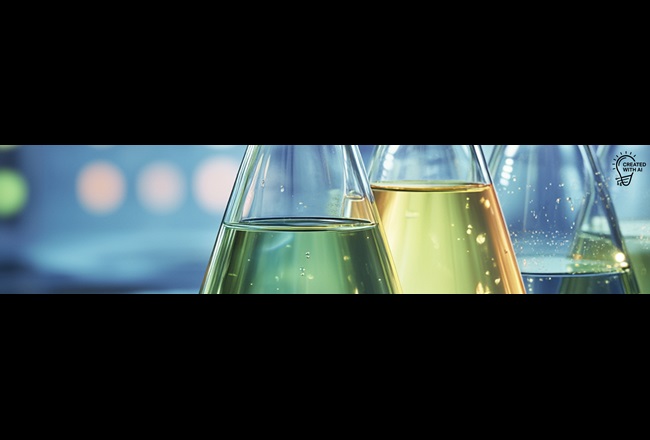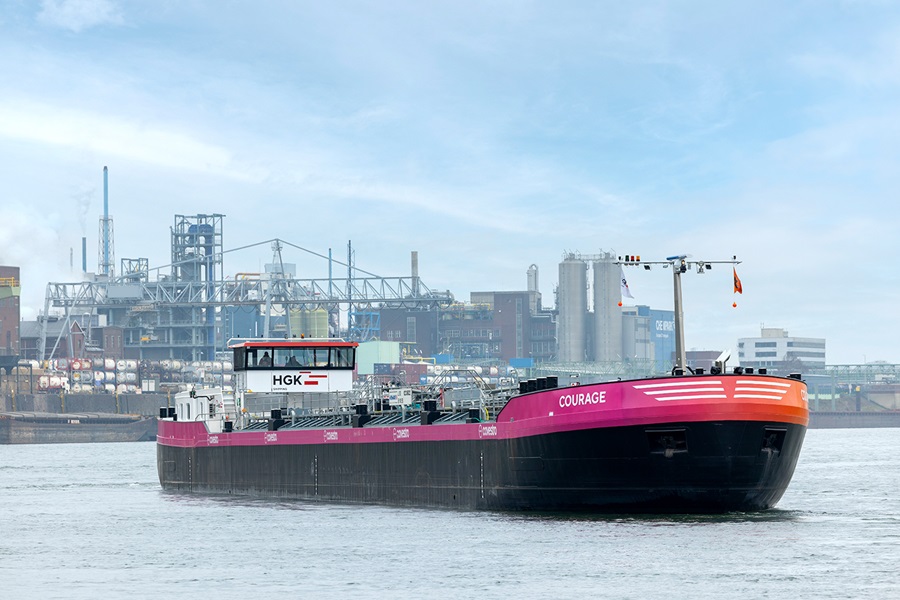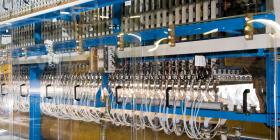
Basic chemicals
Chlorine, caustic soda, and hydrochloric acid are essential basic chemicals that constitute the key building blocks for countless indispensable products and applications.
As a leading chlor-alkali producer using innovative processes and technologies, we pave the way in making the production of basic raw materials less energy intensive and more sustainable, while simultaneously ensuring production and supply reliability as well as consistency in product quality to meet the diverse needs of customers.
Our expertise in innovative solutions for producing more sustainable basic chemicals at ISCC PLUS-certified sites in Germany and multiple locations across the globe drives our progress toward climate neutrality as we continue to be pioneers in developing new technologies and production processes. For instance, our Oxygen Depolarized Cathode (ODC) can save up to 25% of the energy required in the production of chlorine.
As a company producing basic chemicals, we use renewable electricity in our production processes that lowers our carbon footprint and thus helps customers reduce Scope 3 emissions. A key contribution to addressing the high electricity demand in the production process of basic chemicals is the supply of more sustainable chlorine, caustic soda, and hydrochloric acid from production sites in Leverkusen, Dormagen, and Uerdingen. These sites are certified under the ISCC PLUS scheme, which enables the transparent and verifiable allocation of electricity from renewable sources to specific products, contributing to achieving our target of climate neutrality in Scope 1 and Scope 2 emission by 2035.

We operate two low-water vessels for hydrochloric acid that represent one of the most modern and innovative design in their category, significantly reducing CO₂ emissions along with particulate matter and other pollutants. These vessels play a crucial role in ensuring safe and uninterrupted transportation of goods across the Rhine, positioning us to effectively manage extreme situations, particularly low water conditions. The ships hold remarkably strategic importance for the Leverkusen, Dormagen, and Krefeld-Uerdingen facilities, as approximately 30 percent of hydrochloric acid manufactured at these locations are delivered to customers via the Rhine. By incorporating advanced vessels into our logistics network, we have substantially mitigated the risk of supply chain disruptions.
Membrane-grade chlor-alkali products chlorine and caustic soda (NaOH) are supplied to a broad range of industrial sectors. Additionally, hydrochloric acid (HCl), a by-product of isocyanate production, is delivered to various markets. More sustainable production of chlorine, caustic soda, and hydrochloric acid at our ISCC PLUS-certified sites in Leverkusen, Dormagen, and Uerdingen contribute to more circularity in the chemical value chain.
Chlorine
Chlorine is consumed across various industrial sectors to produce a wide range of chemical compounds. It may serve either as a direct source of chlorine incorporated into end products or as an intermediate in diverse chemical synthesis processes.
Caustic soda
Membrane technology is employed for the production of sodium hydroxide (caustic soda) via the electrolysis of sodium chloride. Caustic soda is a versatile chemical used across numerous applications throughout the industrial value chain.
Hydrochloric acid
Isocyanate production facilities at various of our sites generate hydrochloric acid as a valuable by-product. This high-purity hydrochloric acid is a versatile compound suitable for a wide range of applications that require low levels of impurities.
















